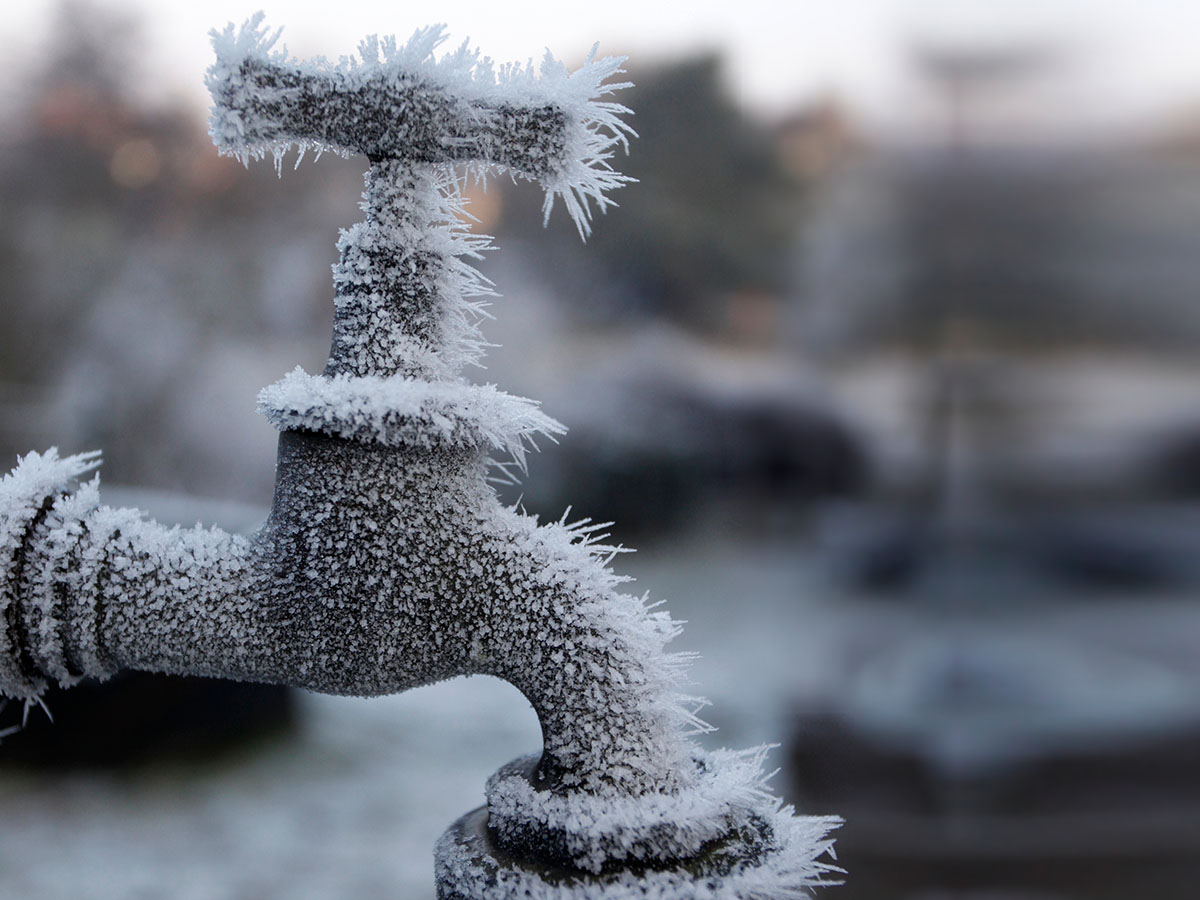How to Avoid Frozen Pipes in Winter: Expert Guidance
How to Avoid Frozen Pipes in Winter: Expert Guidance
Blog Article
We've come across this post relating to How to Prevent Your Pipes From Freezing directly below on the web and reckoned it made perfect sense to write about it with you in this article.

Cold weather can wreak havoc on your plumbing, especially by freezing pipelines. Below's how to prevent it from happening and what to do if it does.
Introduction
As temperatures decrease, the danger of frozen pipes boosts, potentially causing expensive repair services and water damage. Comprehending how to prevent frozen pipelines is critical for home owners in chilly climates.
Prevention Tips
Shielding vulnerable pipes
Cover pipelines in insulation sleeves or utilize warmth tape to shield them from freezing temperature levels. Concentrate on pipelines in unheated or external locations of the home.
Home heating strategies
Maintain indoor areas effectively warmed, specifically locations with plumbing. Open cabinet doors to permit warm air to flow around pipes under sinks.
Just how to identify icy pipes
Try to find lowered water circulation from faucets, uncommon odors or sounds from pipes, and noticeable frost on revealed pipes.
Long-Term Solutions
Structural modifications
Take into consideration rerouting pipes far from outside walls or unheated locations. Add added insulation to attics, cellars, and crawl spaces.
Updating insulation
Purchase top quality insulation for pipes, attic rooms, and walls. Proper insulation aids preserve consistent temperature levels and minimizes the risk of icy pipes.
Shielding Outside Pipes
Garden tubes and outside taps
Disconnect and drain pipes garden pipes prior to winter season. Mount frost-proof spigots or cover outside taps with insulated caps.
Comprehending Icy Pipes
What triggers pipelines to ice up?
Pipelines freeze when subjected to temperature levels listed below 32 ° F (0 ° C) for expanded periods. As water inside the pipes freezes, it broadens, taxing the pipeline wall surfaces and possibly creating them to break.
Threats and problems
Frozen pipes can result in supply of water disruptions, home damage, and expensive repairs. Ruptured pipes can flood homes and cause extensive architectural damages.
Indicators of Frozen Water Lines
Determining frozen pipes early can avoid them from bursting.
What to Do If Your Pipelines Freeze
Immediate actions to take
If you believe icy pipelines, keep taps open up to ease stress as the ice melts. Make use of a hairdryer or towels soaked in warm water to thaw pipes slowly.
Final thought
Preventing icy pipelines requires positive actions and quick actions. By understanding the causes, indications, and safety nets, homeowners can safeguard their pipes throughout winter.
6 Proven Ways to Prevent Frozen Pipes and Protect Your Home
Disconnect and Drain Garden Hoses
Before winter arrives, start by disconnecting your garden hoses and draining any remaining water. Close the shut-off valves that supply outdoor hose bibs and leave the outdoor faucet open to allow any residual water to drain. For extra protection, consider using faucet covers throughout the colder months. It’s also important to drain water from any sprinkler supply lines following the manufacturer’s directions.
Insulate Exposed Pipes
Insulating your pipes is an effective way to prevent freezing. Pipe insulation is readily available at home improvement stores and is relatively inexpensive. Pay close attention to pipes in unheated areas such as the attic, basement, crawl spaces, or garage. Apply foam insulation generously to create a buffer against the cold. You can also wrap your pipes in heat tape or thermostat-controlled heat cables for added warmth.
Seal Air Leaks
Inspect your home for any cracks or openings that could let in cold air. Seal any holes around the piping in interior or exterior walls, as well as the sill plates where your home rests on its foundation. Additionally, make sure to keep your garage door closed unless you’re entering or exiting. Leaving it open creates a significant air leak that can lead to frozen pipes.
Allow Warm Air Circulation
During cold snaps, it’s essential to allow warm air to circulate evenly throughout your home. Leave interior doors ajar to promote better airflow. Open kitchen and bathroom cabinets to help distribute heat consistently around the rooms. If you have small children or pets, be sure to remove any household chemicals or potentially harmful cleaners from open cabinets for safety.
Let Faucets Drip
A small trickle of water can make a big difference in preventing ice formation inside your pipes. When temperatures drop significantly, start a drip of water from all faucets served by exposed pipes. This continuous flow helps prevent the water from freezing. Additionally, running a few faucets slightly can relieve pressure inside the pipes, reducing the chances of a rupture if the water inside does freeze.
https://choateshvac.com/6-proven-ways-to-prevent-frozen-pipes-and-protect-your-home/

We were shown that report about How to Prevent Your Pipes From Freezing through an acquaintance on a different site. Are you aware of anybody else who is interested by the topic? Take a moment to promote it. Thank you so much for going through it.
Source Report this page